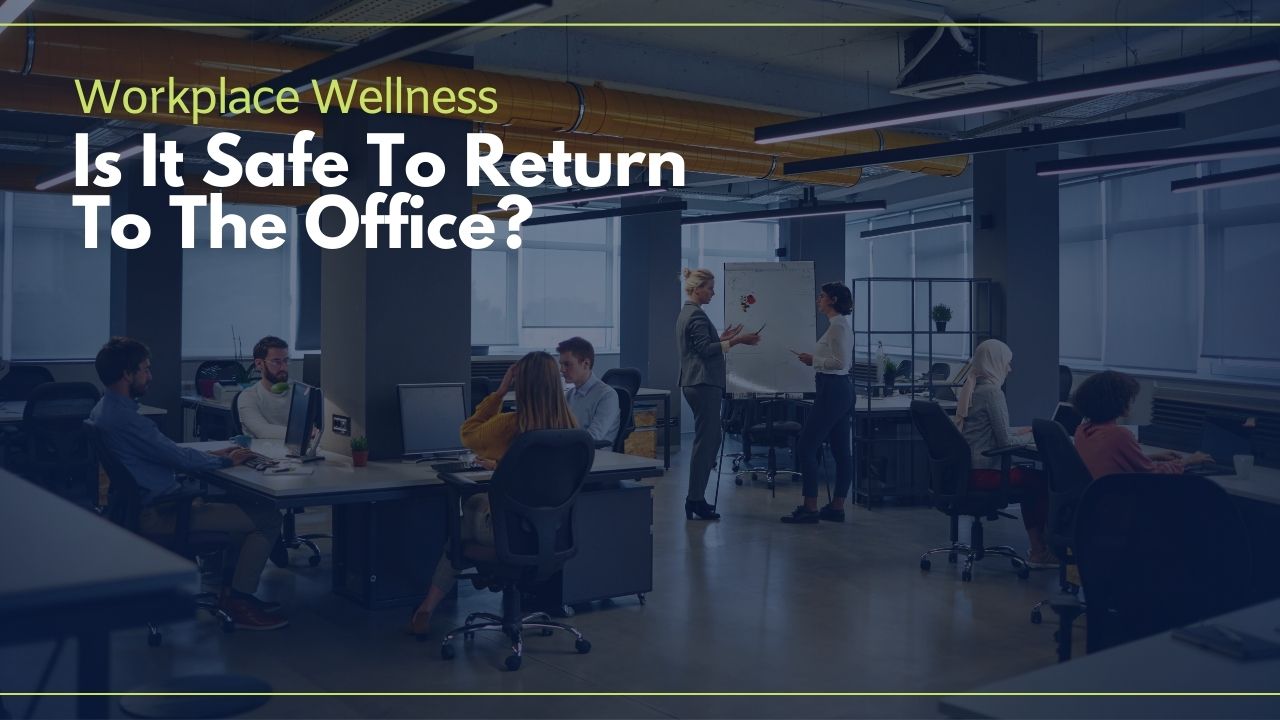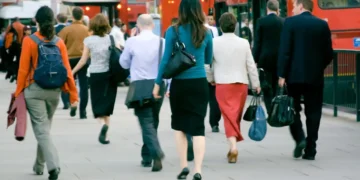- 59% of U.S. workers who have not yet returned to the office are worried about safety, according to a study by MindEdge.
- 40% have been told by their company that they must be vaccinated before returning to the office.
- In addition, employees are concerned about job security — with many eager to learn new skills.
MindEdge’s latest research found that 59% of U.S. workers who have not yet returned to the office are worried about safety.
Despite the fact that the United States’ vaccination rollout has gained momentum, the report found that the majority of workers are not fully ready to head back into the office, with many stating that they fear they will be asked to return to the workplace “before it is safe to do so”.
Those that have already gone back to the office, some report feeling safe, while others (26%) did not.
Companies are responding to these concerns with vaccine mandates.
Vaccine Mandates
The report found that many employers will mandate that their workers be vaccinated as a condition for returning to in-person work. In fact, 40% of those surveyed said that they have already been told by their company that they must be vaccinated before returning to the office.
14% of respondents haven’t been told whether their employer will require vaccines or not; and 47% are still unaware of what the requirements will be to return to the office.
Interestingly, among those who have not yet been told the requirements, 36% expect vaccination to be required by their company.
Speaking to Allwork.Space, Frank Connolly, director of research at MindEdge Learning, said that it’s hard to say what all companies will do; “it’s going to depend on each company and the nature of the business.”
Businesses that have employees in customer-facing positions may be more inclined to require the vaccine. Some companies may allow unvaccinated workers to keep working remotely; others may not be so understanding.
In a time where job security is a main concern for workers—43% of workers say they are “very concerned” about their job security—it seems that many will have little choice but to get the vaccine.
The US Department of Labor has stated that if employers want to require vaccines, they can do that.
Not only will job security increase the likeliness of workers getting vaccinated, but it may push them to return to the office before they are ready, Connolly argues.
Return to the Office: Fear of Safety + Fear of Missing Out
Job security, however, may not be the only thing that pushes workers to head back into the office before they feel safe to do so.
MindEdge’s report found that “the hybrid work model inspires FOMO” among workers; with 20% saying they would miss out from camaraderie with coworkers and 15% saying they would feel isolated and lonely.
Worker worries go beyond the social aspect of work.
One-third (33%) of workers surveyed believe that in-person workers will do better, in terms of raises and promotions, compared to those who choose to continue working remotely.
The fear is not entirely unfounded; the report found that 39% of members of management are more likely to say that remote workers will come up short vs their in-office counterparts.
New Skills: The Buffer for Job Security Concerns
“What we expect is that there is going to be an increased market and demand for skills training,” Connolly shared.
“From the employer standpoint, they want to be offering those opportunities to workers, but as an added benefit to retain workers.”
Interestingly, MindEdge has found that as uncertainty increases, people’s desire to gain new skills increases.
“New skills can become a buffer for workers; it increases employability.”
The report found that:
“Among managers whose companies are hiring, fully 80% say that certifications – exam-based credentials awarded by an industry recognized authority, such as the Project Management Institute – add value to a job candidate’s résumé. Thirty-nine percent say that certifications add a great deal of value. These figures are higher than we saw in last year’s survey, when 72% of managers said certifications add value, and 28% said they add a great deal of value.”
Considering that everything is up in the air for a lot of workers, focusing on their skillset seems to be a way for many to fend off fears about job security.



 Dr. Gleb Tsipursky – The Office Whisperer
Dr. Gleb Tsipursky – The Office Whisperer Nirit Cohen – WorkFutures
Nirit Cohen – WorkFutures Angela Howard – Culture Expert
Angela Howard – Culture Expert Drew Jones – Design & Innovation
Drew Jones – Design & Innovation Jonathan Price – CRE & Flex Expert
Jonathan Price – CRE & Flex Expert















